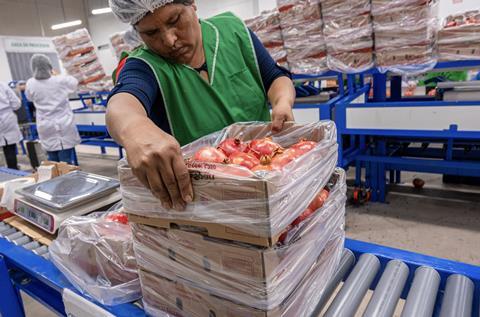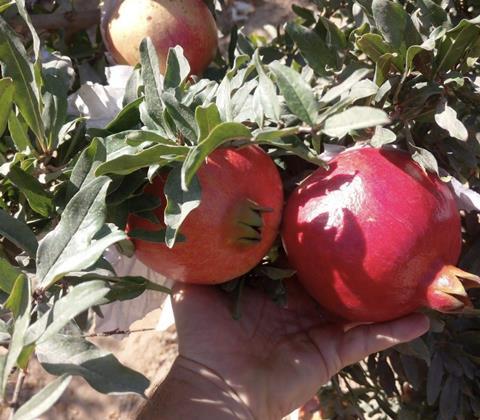Producers of pomegranates in Egypt and Peru are expanding their cultivation areas in response to increasing demand for the superfruit in Europe, according to the Import Promotion Desk

The pomegranate has long been considered a superfruit, its arils and juice valued not just for their sweet-tart flavour but also for their nutritional benefits.
“Global demand for pomegranates has been steadily increasing for several years,” revealed Dorra Zairi, sourcing and markets expert at the Germany-based Import Promotion Desk (IPD). “Europe is one of the most important consumer markets for pomegranates.”
Health is key to this rising demand. “Pomegranates are valued for their high content of antioxidants, including polyphenols, which help protect cells from oxidative stress and may slow cellular aging,” IPD stated. “Pomegranate juice is also associated with potential health benefits, including supporting cardiovascular health, lowering blood pressure and reducing symptoms of arthritis.”
The company works closely with several pomegranate producers, mainly from Egypt but also from Peru, in order to meet growing year-round demand.

“Participating companies are carefully evaluated to ensure they meet market standards regarding quality, availability, delivery conditions and reliability,” IPD stated.
Egypt, an IPD partner country, has seen production grow significantly in recent years, through companies like Wadi Orchard, Farm Pick Fruit Export and Gezira United, with the country’s climate providing ideal growing conditions.
Complementing the Egyptian harvest, which runs from September to November, is Peru, which ensures near continuous supply for the European market with production from February to June.
Globally, the most widely cultivated variety is Wonderful. “It is known for its large fruit, deep red colour and high acidity,” IPD said. “It is suitable both for fresh consumption and juice production. In addition, some Egyptian producers, such as the IPD company Sobek, grow the early-ripening Early 116 variety, which reaches the market before Wonderful.”
The fruit’s thick skin provides exceptional protection during transport and it can be stored for several months at low temperatures. “Fruits are usually shipped chilled by truck or ship, transported loose in crates or boxes rather than individually packaged,” IPD confirmed. “Longer transport routes, such as from Peru, require careful temperature and ethylene management. The Peruvian company EGA Agroindustrial specialises in cultivation, processing and professional shipping. Using the nearby Chilean port of Arica, it ensures efficient transport to Europe, allowing the fruit to retain its quality even over long distances.”



